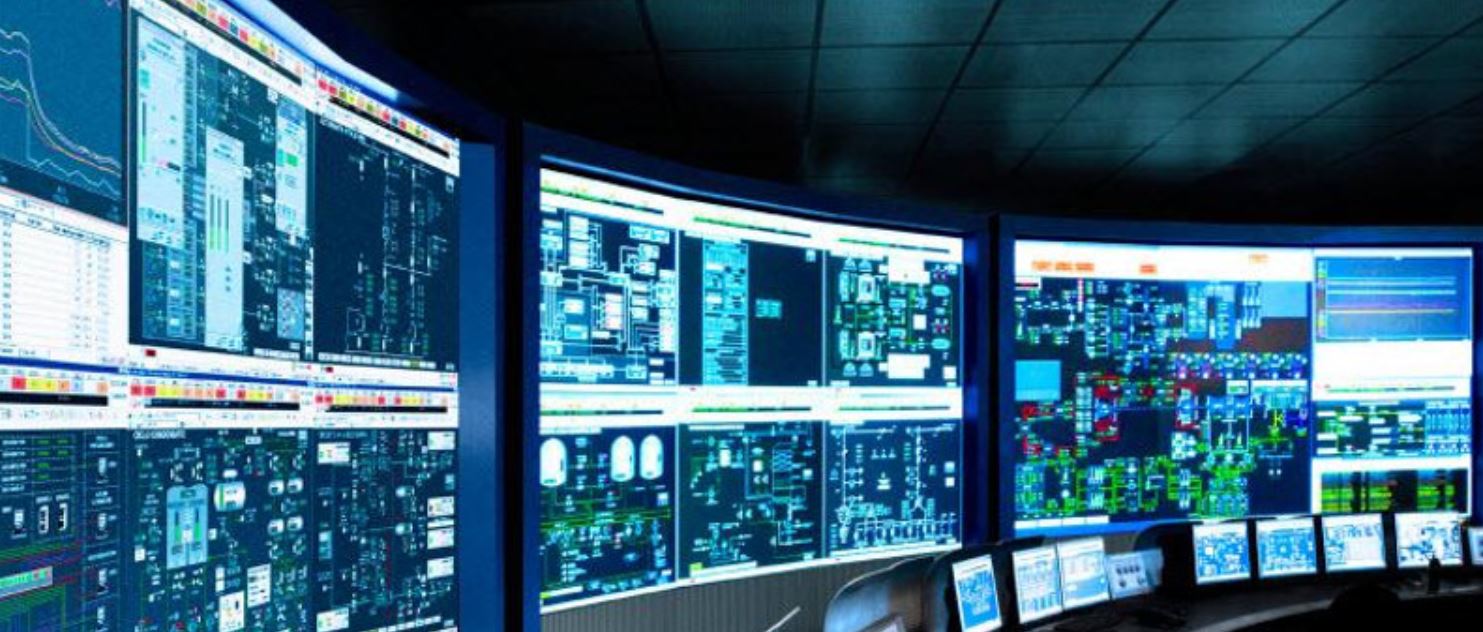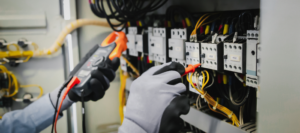
Supervisory control and data acquisition (SCADA) is a system of software and hardware elements that allows industrial companies and manufacturers in both the public and private sectors to:
- Control industrial processes
- Monitor, gather and process real-time data
- Directly interact with devices such as sensors, valves, pumps, motors, and more through human-machine interface (HMI) software
- Record events into a log file
The basic SCADA architecture begins with upgraded programmable logic controllers (PLCs) or remote terminal units (RTUs).
These are microcomputers that communicate with factory machines, HMIs, sensors, and end devices, routing the information to computers with SCADA software, which helps operatives to control and maintain efficiencies, make informed decisions, manage traceability, react to issues with equipment in order to reduce potential downtime.
SCADA systems can be simple, or complex depending on your requirements and are used in many of the following sectors:
- Energy
- Food and beverage
- Manufacturing
- Oil and gas
- Power
- Recycling
- Transportation
- Water treatment
How Can a SCADA System Benefit You?
A well designed and implemented SCADA system can result in significant savings of both time and money. They can help to run everything from refrigeration systems at the local supermarket, manufacturing production at food factories, monitoring water, temperature and chemical levels in swimming pools, through to tracking the energy you use at home.
As technology develops as does the applications and abilities of SCADA systems, whereby there’s becoming an overlap with manufacturing execution systems (MES) that document, manage and report production processes in real time. These activities can be linked to business processes such as work orders, receipt of goods, shipping, quality control, maintenance and scheduling.
Our team of specially trained and experienced engineers are able to review your current processes and recommend whether a SCADA or MES system is required. We can then design and implement the correct system. If an MES system is required, we’ll work with you to ensure checkpoints are included to allow machine operators to produce each batch of product within the required parameters, using the right materials.
FAQs
What is SCADA?
SCADA stands for “Supervisory Control and Data Acquisition”. It is a system used to monitor and control industrial processes and infrastructure, such as food production, water treatment facilities, oil refineries, and manufacturing plants.
How Does SCADA Systems Work?
SCADA systems typically consist of remote terminal units (RTUs) or programmable logic controllers (PLCs) that gather data from sensors and devices throughout a facility. The data is then transmitted to a central computer, where it is displayed on a graphical user interface for monitoring and controlling each process remotely.
What Are the Crucial Components of a SCADA System?
A typical SCADA system comprises four crucial components such as: field devices, RTUs or PLCs, wired or wireless communication infrastructures, central control system with a human-machine interface (HMIs).
Latest Posts
- What is the Difference Between Preventive & Predictive Maintenance?

- What is an OEM Control Panel?

- What Technologies are Advancing with Automation

- How to Incorporate AI into Manufacturing Processes

- UK Electrical Engineering Sector Growth

- Top IoT Trends to Look Out For in 2023

Trusted & Qualified
For more information or to discuss your requirements call us on 01406 424282 or contact us.

